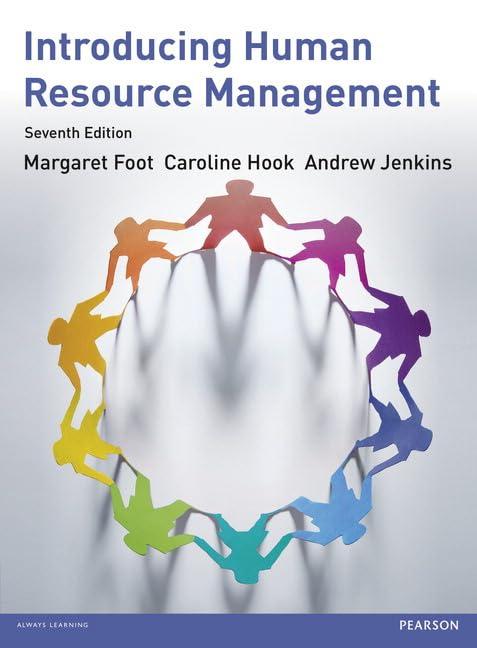When Clare Allums employer offered a transfer from London to Shanghai, her immediate reaction was to call
Question:
When Clare Allum’s employer offered a transfer from London to Shanghai, her immediate reaction was to call her husband and say: “Let’s go.” A human resources professional at EY, the auditor and consultant,
Ms Allum felt her family needed a pick-me-up after learning that their five-year-old son Hugh had developmental problems and hearing loss.
A new beginning, she reasoned, would force them to look forwards. Then reality kicked in. Finding an international school for their daughter was straightforward; but none of them was equipped for Hugh’s needs.
The move to Shanghai seemed to be a non-starter. But then her boss came up with a solution: if they based themselves in Hong Kong, where educational provision is somewhat wider, she could take the transfer and Hugh could go to school. The revised offer was accepted. Now a sociable 13-year-old, Hugh plays Special Olympics golf and is as adept with chopsticks as he is with sign language. Moving to a country where the healthcare and education systems are unfamiliar, where you perhaps do not speak the language and lack the encouragement of old friends, is daunting enough.
However, when a health condition or learning disability – such as dyslexia or autism – is added to the normal anxieties of parenting, the stakes are higher. “We got on a midweek flight to Hong Kong with a real sense of hope,” says Ms Allum, “but also the question: ‘what if this doesn’t work?’”
While there is a limit to how far employers can tweak relocation policies, there are basic adjustments that repay the effort and small extra expense, such as allowing families with unusual needs longer to explore local services during “look-and-see” visits.......
Questions
1. What do employees who have family with special needs have to consider when accepting an international assignment?
2. How might an employer assist a family with special needs when relocating their family overseas for an international assignment?
3. What challenges do expatriates and their family face when they return to the home country?
4. What can the employer do to ensure the successful return of the expatriate and what responsibilities does the employer have for the successful repatriation of the expatriate’s family?
Step by Step Answer:

Introducing Human Resource Mangement
ISBN: 9781292063966
7th Edition
Authors: Margaret Foot, Caroline Hook, Andrew Jenkins





